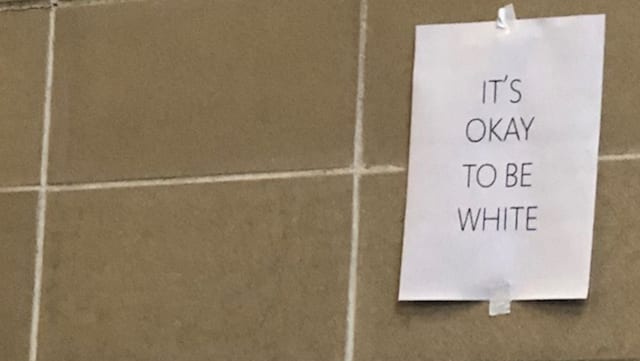
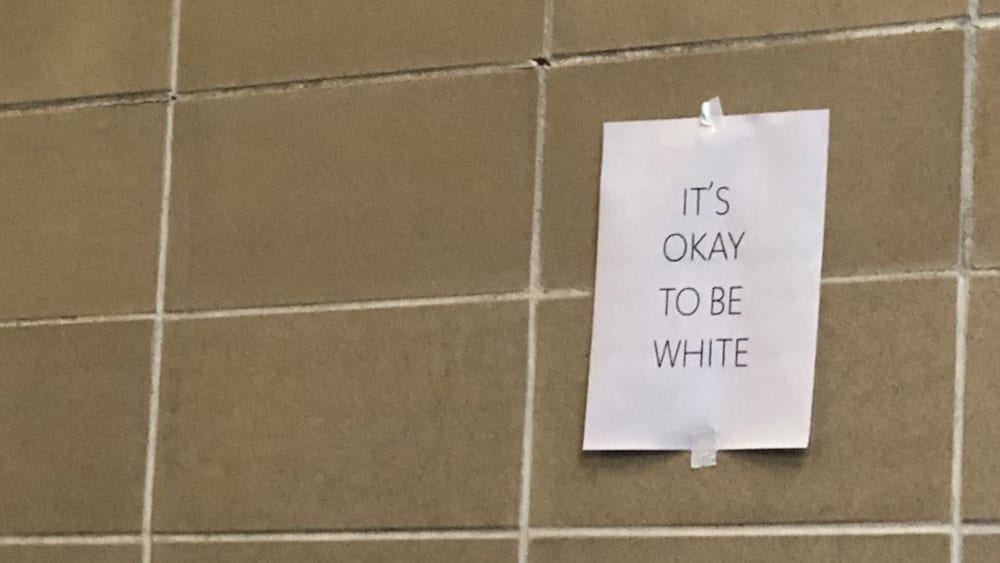
Between 50-100 of these posters were reportedly found on the University of Manitoba campus on Nov. 1. Photo: Niigaan Sinclair / Twitter.
.
Justin Brake
APTN News
Faculty members from the University of Manitoba’s Department of Native Studies say racist posters put up around the university’s campus in Winnipeg last week are an opportunity to educate the public.
Letterhead-sized pages with the words “It’s Okay to be White” appeared Halloween night around the campus at the same time posters with the same message also appeared in Ottawa, Halifax and New Westminster, B.C.
The posters, which reportedly originated on the online politics forum 4chan by white supremacists and have since been embraced by neo-Nazi and other far right groups, have also appeared in the United States, New Zealand, Australia and the United Kingdom.
Last Friday University of Manitoba President David Barnard said in a statement the university “unequivocally condemns this and any other racist actions,” and that “there is no tolerance for hate and discrimination.”
The Winnipeg Police Service told APTN News Thursday they are reviewing information and a request to investigate the incident but have not yet assigned the case to an investigative unit.
An anonymous person using the alias ‘Martin Luther’ and claiming to be a University of Manitoba student emailed media after the posters went up.
The person, who would not confirm their identity with APTN, alleged in the email that they put up the posters “in protest of racially discriminatory ideology that is taught at the University of Manitoba that targets white individuals.”
“The individuals leveling these extremist accusations of hidden meaning and intent have only been able to support their vitriolic claims by attempting to tangentially associate the benign message on the flyers with random ideologies such as ‘Neo-Nazism’ or vaguely defined groups of individuals such as the ‘Alt-Right’, neither of which I have any affiliation with in any capacity whatsoever,” they said in the statement.
It’s not the words, it’s the meaning behind the words: advocate
Evan Balgord of the Canadian Anti-Hate Network said the posters were originally intended to provoke backlash to the alt-right, giving white supremacists grounds on which to argue that anyone opposing the posters “must hate white people because they hate these posters that say it’s ok to be white.
“It’s not the actual contents of the message that’s the issue, it’s their meaning,” Balgord explained.
The advocate and journalist, who also serves as the Canadian Association of Journalist’s vice president, closely monitors alt-right activity in Canada online.
He said if the person who put up the posters does not identify as a member of the alt-right or any white supremacist group, that merely “speaks to the success of their campaign…if they get people who aren’t explicitly part of their movement [to] put up the posters and spread their propaganda.”
There are “easily hundreds” of individuals associated with a number of groups in Canada who identify as alt-right, Balgord explained.
“And make no mistake, the alt-right is simply a rebranding of neo-Nazism. They just differ a bit in their message and in their recruitment base, but the ideology is exactly the same. They say hate women—they particularly hate women—LGBTQ+ persons, Indigenous folks, anybody who is not white they hate. And their ultimate goal is to build a white ethno state by any means possible. That means they want a state for white people governed by white people that would be 99 percent white, 96 percent white — something like that.”
Balgord said in the aftermath of the Pittsburgh synagogue shooting last month, the Halloween poster campaign “is a show of force put on by a movement that has killed people.
“What they’re saying is, we’re still out here, we’re still doing this, look at us all do this at once: we are a force to be reckoned with.”
“Just another onslaught” of racism for Indigenous people
But at the University of Manitoba the posters were just one the latest displays of racism faced by Indigenous students and faculty, says U of M’s Vice Provost for Indigenous Engagement Lynn Lavallee.
“Given the climate of anti-Indigenous racism happening to students and staff regularly, this is just another onslaught. So it’s had an impact. Students are very, very tired.”
Lavallee said “when things like this happen we come together and do ceremony on our own just to regroup.”
.

The University of Manitoba campus in Winnipeg is just one of several locations across Canada where the posters were discovered after Halloween. Photo: University of Manitoba / Facebook.
.
Cary Miller, an historian and head of the department of Native Studies at the university, said following the poster campaign her department received “hate emails over the weekend from a couple of different individuals” that were “directed to members of our department, to members of the university administration.”
In their email to media the anonymous alleged student who claimed responsibility for the posters specifically took issue with “the horrifying reality…that many professors explicitly teach in their courses that it is in fact NOT okay to be white.”
They allege that U of M professors “teach that white people: are guilty of possessing ‘unearned privilege and power; are inherently, by their very existence, oppressing ‘people of colour’; are born ‘racist’ and are the only racial group capable of being ‘racist’; must submit to ‘people of colour’ by ‘giving up their power’; [and] that white people ‘giving up power’ involves reducing the proportion of white people in business organizations and government.”
They cite “mandatory enforced diversity” policies as an example of the latter and say it amounts to “ethnic cleansing.”
They also say that “white people must accept becoming a minority demographic (and thus lose their right to self-determination) in their own countries as penance for ‘colonialism’.”
Miller, who is Anishinaabe and transferred to the university from the University of Wisconsin-Milwaukee last year, said she believes the poster campaign is indicative of a “broader agenda against any course work—and there’s a lot in the Faculty of Arts—that talks about…what privilege is and how it works in society.”
Posters an educational opportunity
Miller and Native Studies professor Peter Kulchyski were both reluctant to do an interview about the posters, citing fear the media attention would facilitate the spread of hateful messaging.
But both also said properly addressing the alleged student’s claims present an opportunity for the public to think more critically about the poster’s message and the alleged student’s claims.
Kulchyski, a non-Indigenous professor who has taught at the university for almost 20 years, said while there “are no curricular guidelines that force professors to teach one thing or another,” he is not aware of any professors teaching what the anonymous person claims: that it’s not okay to be white.
He addressed each of the anonymous person’s allegations, one by one.
On the claim that professors at the University of Manitoba teach that “white people are guilty of possessing ‘unearned privilege and power,’” Kulchyski said he teaches “about settler colonialism rather than [about] white people,” and that non-Indigenous people in Canada—of European descent and also people of colour—have ended up here for a variety of reasons and under various circumstances.
Regardless of those circumstances though, they “become part of a settler colonial population,” and that by “stepping into the settler colonial social group you are gaining an unearned privilege.
“You’re gaining access to a land base, in some way or other—through your employment or through social programs–or tax revenues come from that that’s been taken from Aboriginal people–often without permission.”
.
.
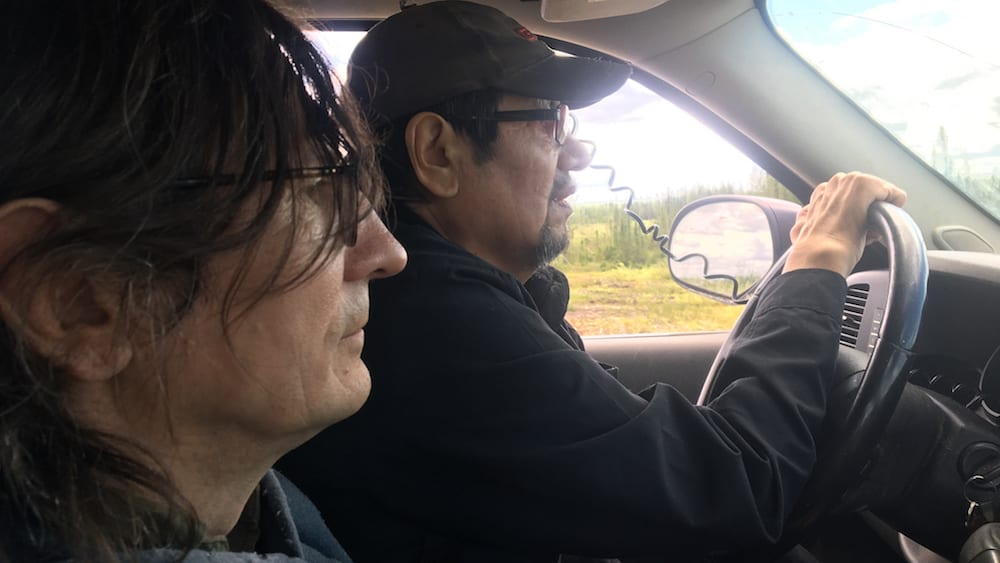
Native Studies Professor Peter Kulchyski (left) says the posters that appeared on the University of Manitoba campus are a “sign that some of the processes of reconciliation are having some success and are starting to get some people’s backs up.” Justin Brake/APTN file photo.
.
While the anonymous alleged student claims professors teach students white people are “guilty” of possessing that privilege, Kulchyski rejects the use of guilt to teach students anything.
“I’m absolutely trying to get away from the politics of guilt,” he said, explaining he instead asks students to think about their place in society in the context of responsibility.
“Everyone’s responsibility is at a very different level depending on their situation and their social circumstances,” he explained.
“I’ve never found so-called ‘white guilt’ to be a very useful, empowering, strategic thing to accomplish or use. I’m trying to give people a strong sense of the history and social dynamics so they can be ethical historical agents, rather than acting out of shame or guilt.”
Responding to the allegation that professors teach that white people “are inherently, by their very existence, oppressing ‘people of colour’,” Kulchyski said that people don’t inherently oppress others.
“It’s a structural thing,” he said.
“Structurally, anyone who is a part of the settler colonial majority population of Canada is in a position where they’re either working to support it or working against it.”
On the idea that white people are “born racist” and are the “only racial group capable of being ‘racist’,” Kulchyski said people aren’t born with biases–such as racial biases–and that “racism is a socially produced virulent ideology” that “deserves being combatted.”
The professor, who has authored books on colonialism and Aboriginal rights, said he’s “Polish and Ukranian in origin” and therefore among the “dominant ethnicities” in Canada, which he says are European.
While “people might have biases about me or my social group,” as a member of the privileged groups in society, he explained, “whatever biases expressed toward us tend to be more benign or don’t have the kind of virulent social impact that biases expressed toward disempowered people have.
“So I don’t usually use the term racism to describe anti-European sentiments.”
He also refuted the anonymous alleged student’s claim that professors are teaching that white people “must submit to people of colour by giving up their power.”
Kulchyski believes that “the less hierarchy we have in society, I think the healthier society is,” but that so long as hierarchies do exist they should represent the diversity of peoples in Canada.
“In Canada the class elite is largely dominated by Europeans,” he said, adding that the anonymous alleged student is mistaken in suggesting that relinquishing power amounts to submission.
“Giving up your power doesn’t imply that you’re submitting — it implies that you’re treating people as equals.”
Kulchyski took particular issue with the anonymous alleged student’s use of the term “ethnic cleansing” to describe diversity policies in business and government institutions.
“There has been ethnic cleansing in Canada with Indigenous peoples,” he said. “So to say a business has to hire an Aboriginal executive member to me does not qualify anywhere close to that standard.”
Responding to the claim that “white people must accept becoming a minority demographic (and thus lose their right to self-determination) in their own countries as penance for ‘colonialism’,” Kulchyski pointed out that “Europeans are becoming a minority demographic because of birth rates to a large extent, at least as much as [due to] immigration.
“We need immigration to have people who are willing to do jobs that the white coming minority doesn’t really want to do,” he added.
“None of this is penance for colonialism; this is just historical forces that capitalism and business itself has created with their move towards globalization.”
Moving beyond historical mythologies
Miller and Kulchyski both said they’ve seen this kind of response to social progress before.
“To me it’s a sign that some of the processes of reconciliation are having some success and are starting to get some people’s backs up,” Kulchyski said.
“There are going to be, with any socially progressive step forward to deal with the legacy of settler colonialism, virulent reactions on the part of a very small and uninformed minority.
“With each historical moment we have to determine how we’re going to deal with that backlash. In some cases it might mean ignoring it, in some cases it might mean confronting it directly.”
Miller said over the years she’s watched as non-Indigenous students are subjected to new information that challenges the “origin stories or mythologies” they’ve been taught “as histories” about their countries before they reach university.
Those narratives, she said, are “based in some truth, but glorify and exaggerate certain points and completely ignore others.
“There’s this fear that somehow understanding the full and complete history, with all its warts, is in some way going to make one a bad citizen or make one not love their country,” she continued.
.
.
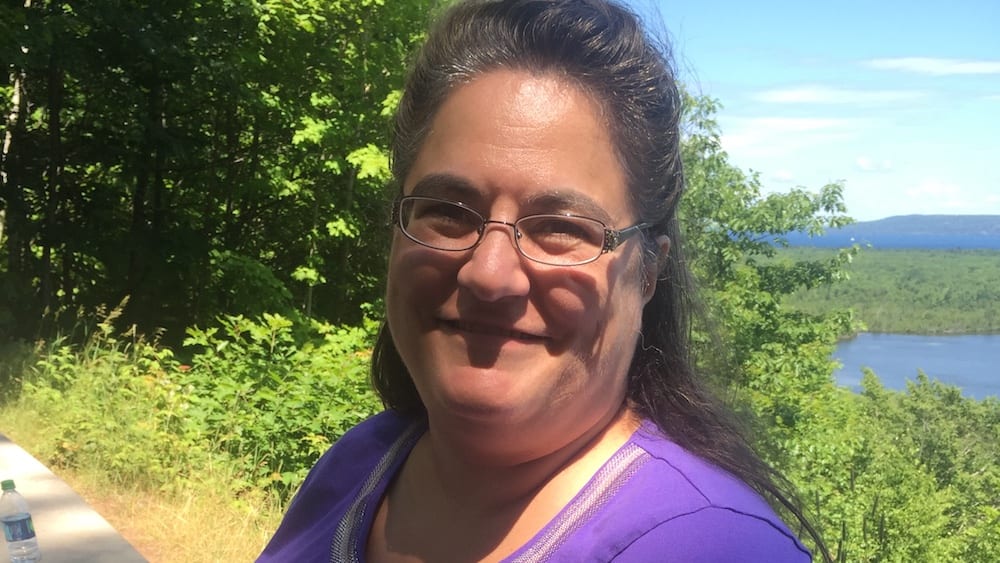
Cary Miller, an Anishinaabe historian and Head of the University of Manitoba’s Department of Native Studies, says students often struggle when learning Indigenous histories that challenge the “origin stories or mythologies” they grew up with. Submitted photo.
.
.
“If we know this is where our country was, and if we look at the civil rights [movement], or if we look at the truth and reconciliation [efforts] and the amazing changes that people are trying to make in society—and we celebrate that and look at that as an amazing collaboration between Indigenous and non-Indigenous populations—then we’re celebrating the evolution of European thinking toward a kinder and more honest [way to think] about themselves and about us and about the nation.”
Miller said students who have their beliefs or understandings of history challenged when they learn about Indigenous histories “in some ways go through a process whereby they almost have to grieve for the loss of this beautiful, shining identity that they thought was the case before they move to a place of acceptance of what actually is.”
She said “you can almost see young people go through the five stages of grief—denial, anger, bargaining and sometimes guilt instead of depression—before coming out to acceptance.
“Students go through that at different rates. Sometimes they take a Native Studies class and jump to acceptance quickly. But some of them get stuck, especially if they wander into some kind of an online forum where they can dig in with people who think like them and reinforce their false beliefs.
“Unless we recognize our true histories, embrace them, recognize the unintended contemporary outcomes of real historical moments and the narrative myths that we’ve created around them, then we can’t address the real problems in modern society.”
APTN offered the anonymous alleged student the opportunity to do an interview on the condition they reveal their identity.
They chose not to out of fear of legal and academic repercussions.





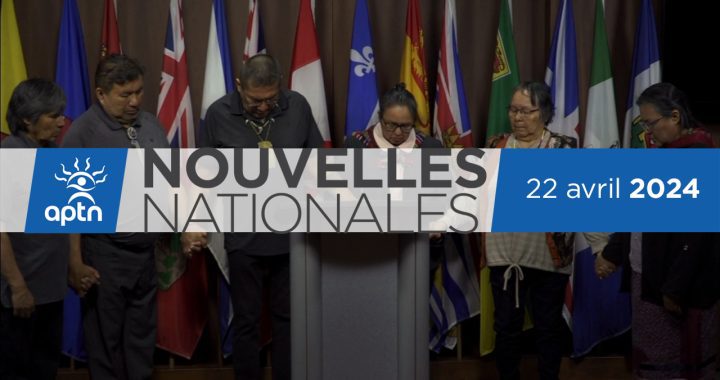




Thank you for this article! As someone born in the city named Richmond in 1969, I have gone from a fairly uninformed, patriotic Canadian to someone thankful for the privilege of being born here who is increasingly dismayed with the failure of Canada to be a just nation to all the people within its artificial borders.
Thank you for this article! As someone born in the city named Richmond in 1969, I have gone from a fairly uninformed, patriotic Canadian to someone thankful for the privilege of being born here who is increasingly dismayed with the failure of Canada to be a just nation to all the people within its artificial borders.
If its racist to be white I’m not sure what isn’t racist. Is it ok to he black? Is it ok to be Native? Why have you labeled an entire race racist because of their skin colour? Almost sounds racist. What planet do you live on writing an article like this and labeling people? You know damn well if this was any colour but white, you would not have written this and it would not he a story. Shame on you and just know that you will never accomplish anything positive with behaviour like this.
If its racist to be white I’m not sure what isn’t racist. Is it ok to he black? Is it ok to be Native? Why have you labeled an entire race racist because of their skin colour? Almost sounds racist. What planet do you live on writing an article like this and labeling people? You know damn well if this was any colour but white, you would not have written this and it would not he a story. Shame on you and just know that you will never accomplish anything positive with behaviour like this.